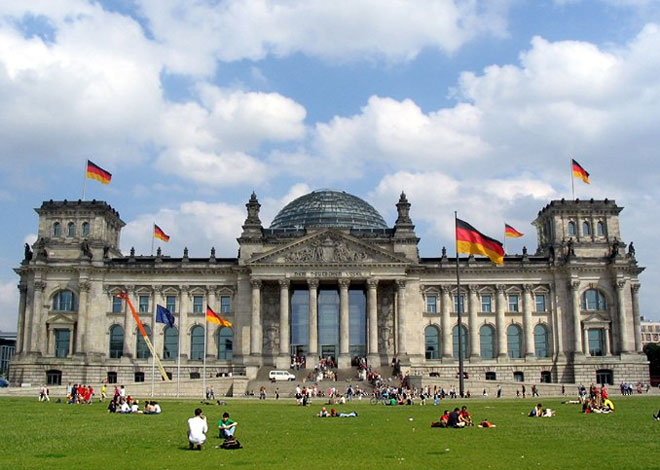Germany's main Islamic organizations held a crisis meeting Friday after the government in Berlin suspended a fundamentalist group from talks about aid to the Muslim community, DPA reported.
The Council of Islam, which is dominated by the Turkish-based Milli Gorus religious movement, was told this week it was no longer welcome at the German-Islam Conference, a long-running series of consultations with the German government about education and poverty.
About 5 per cent of Germany's population, or 4 million people, are of Islamic background.
Germany's three other national Muslim bodies met in Cologne with Council of Islam leaders to discuss now boycotting the government talks.
A spokeswoman for the Central Council of Muslims, another of the four groups, said the outcome of the two-day meeting was wide open.
"Theoretically even a boycott by all four groups of the German-Islam Conference is possible," said Nurhan Soykan.
German Interior Minister Thomas de Maiziere earlier told the Council of Islam it could only participate in the consultations "passively" because Milli Gorus leaders were the object of criminal inquiries.
The group rejected the suspension and said it would withdraw completely.
German intelligence agencies have kept Milli Gorus under surveillance and police have focussed on alleged accounting irregularities in its bookshops and grocery stores, money laundering and fraudulent misuse of donations.
"One cannot sit at the same table with such people," said de Maiziere.
Milli Gorus, which has 27,000 members, denies that its fundamentalist brand of political Islam is subversive or anti-democratic.
The other two groups at the Cologne meeting are Ditib, which builds mosques as an arm of the Turkish Religious Affairs Ministry, and the Union of Islamic Cultural Centres, another mosque federation. The four bodies have a joint coordination council.
The consultations are focussed on introducing Islamic classes at German schools and improving the poor school performance and dull job prospects of Muslim children. The biggest group of Muslims are of Turkish origin.
Mosque groups were upset from the beginning that the German government was selecting who would speak for Muslims. Berlin chose 15 envoys, of whom only five were associated with the mosques. Some of the other 10 had given up their Islamic faith.
Muslim groups in crisis meeting after Berlin ejects fundamentalists
Germany's main Islamic organizations held a crisis meeting Friday after the government in Berlin suspended a fundamentalist group from talks about aid to the Muslim community.






